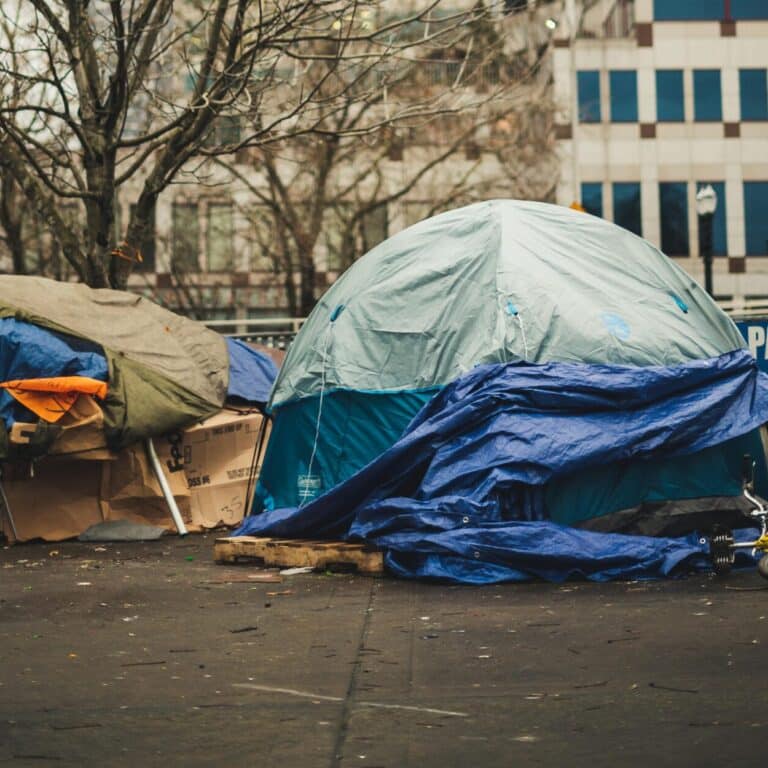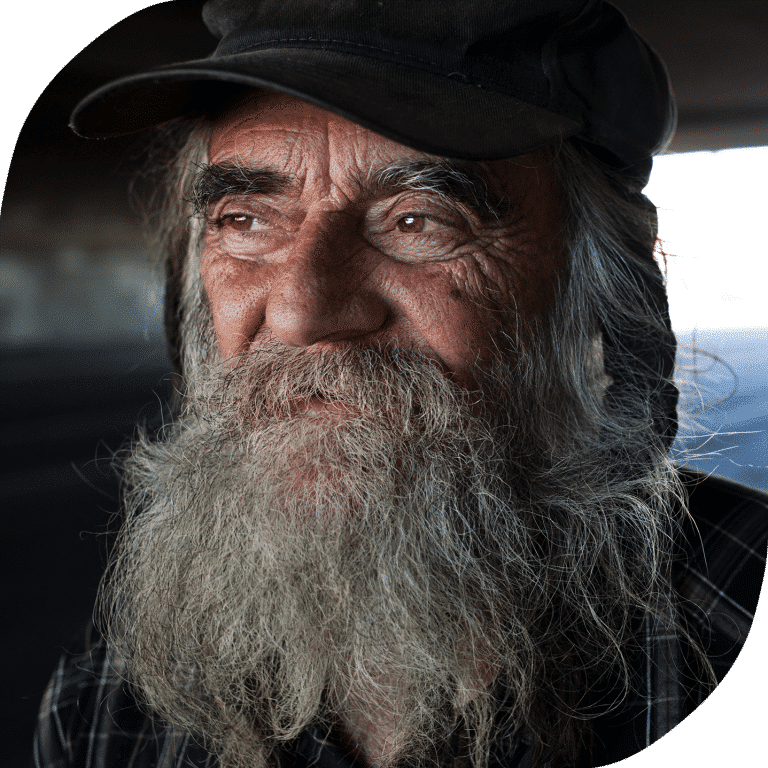What we’re doing
While domestic protections have lagged behind, the high rates of poverty in the province violate B.C.’s obligations to respect people’s right to an adequate standard of living as enshrined, or protected, in international law. BC’s Office of the Human Rights Commissioner (BCOHRC) is committed to working towards effective and meaningful domestic protections for economic rights, engaging in poverty as a human rights issue, dismantling discrimination against people living in poverty and advocating for policy change.
Below are some of the examples of our work in this area.



Working to protect the human rights of encampment residents
Homeless encampments are some of the most visible evidence of the failure by all levels of government to protect the human right to adequate housing. Here in B.C., recent years have seen encampments from Surrey to Smithers and Vernon to Victoria. Often, we respond not by addressing what causes encampments, but by scattering the people living there—frequently through the use of police force. BCOHRC continues to work to respond to the rise of encampments as a failure to uphold the human right to adequate housing.
The Commissioner’s recent guidance (PDF, 159KB) addresses the issue as a right to adequate housing that all levels of government are responsible to uphold. The response outlines three main areas of importance: the right to adequate housing, the rights of encampment residents and the violation of human rights caused by forced evictions.
As discussed in her September 2023 op-ed on the subject, it is up to local authorities, in partnership with other levels of government, to fulfill their obligations to encampment residents and stop forcibly evicting them without regard to their legally protected human rights.

Bringing international protections for economic rights home
In support of BCOHRC’s mandate to promote compliance with international human rights obligations, our first report to the United Nations periodic review process occurred in February of 2020 on the International Covenant on Economic, Social and Cultural Rights (ICESCR).
Under international law, economic rights—like the right to an “adequate standard of living” through necessities like food, water and housing—are protected. These basic rights, as well as rights to education, health care, work and more, are contained within the ICESCR, which Canada ratified in 1976.
However, these rights are not currently protected under Canadian domestic law, which makes them difficult to enforce. B.C.’s Human Rights Commissioner is committed to ensuring that there are domestic protections for economic rights. One way we work towards this is by engaging with the United Nation’s periodic review process, which looks at how countries are doing in relation to the rights outlined in the ICESCR.
B.C.’s Human Rights Commissioner is concerned that economic, social and cultural rights, such as access to basic needs like food, water and housing, continue to be routinely violated in Canada. Poverty in British Columbia is high: one in 10 residents live in poverty, and those receiving basic assistance are still left with an annualized income less than 50 per cent of the poverty line threshold.
Supporting “social condition” as a protected ground in B.C.’s Human Rights Code
Because social condition is not on the list of protected grounds within the B.C. Human Rights Code, low-income people who face discrimination on the basis of poverty, education levels, stigma related to drug use or other aspects of social condition do not have access to justice when they face this kind of discrimination. Discrimination on the basis of social condition is a serious and long-standing issue in B.C. that has been raised by people and organizations across the province for many years. During COVID-19, we saw an escalation in the discrimination and violence facing people living in poverty.
Since 2020, BCOHRC has been calling for the addition of social condition to the Code. To learn more about this issue and to hear from low-income people who participated in the generation of this work, read our report on social condition.
To learn more about hate based on social condition during the COVID-19 pandemic, read this section of the final report of the Inquiry into hate in the pandemic.
What we know
children in B.C. growing up in poverty. Studies show there are long-term impacts on children’s health and development.1/2
queer, transgender and Two-Spirit youth are forced out of their homes. Studies show that queer and trans youth homelessness is often caused by severe family conflict.3
of seniors in B.C. live in poverty. B.C. has the highest seniors’ poverty rate in Canada at eight per cent.4
single senior women in B.C. were poor. in 2014 (33.8 per cent) compared to 22.5 per cent of senior men.5
- https://still1in5.ca/wp-content/uploads/2020/01/First_Call_Report_Card_2019_Summary_revised_Jan_22_2020_web.pdf
- http://earlylearning.ubc.ca/media/edibc_wave7_2019_provincialreport.pdf
- https://bchumanrights.ca/wp-content/uploads/2024/05/2013_prc-lgbqt-poverty-factsheet.pdf
- https://www.sparc.bc.ca/wp-content/uploads/2020/11/BC-Seniors-Poverty-Report-Card.pdf
- https://policyalternatives.ca/sites/default/files/uploads/publications/BC%20Office/2017/04/ccpa-bc_seniors-inequality.pdf
